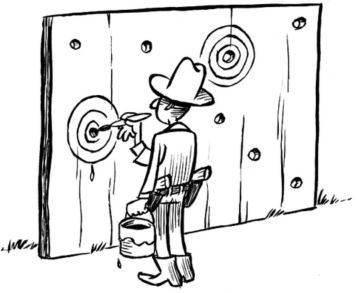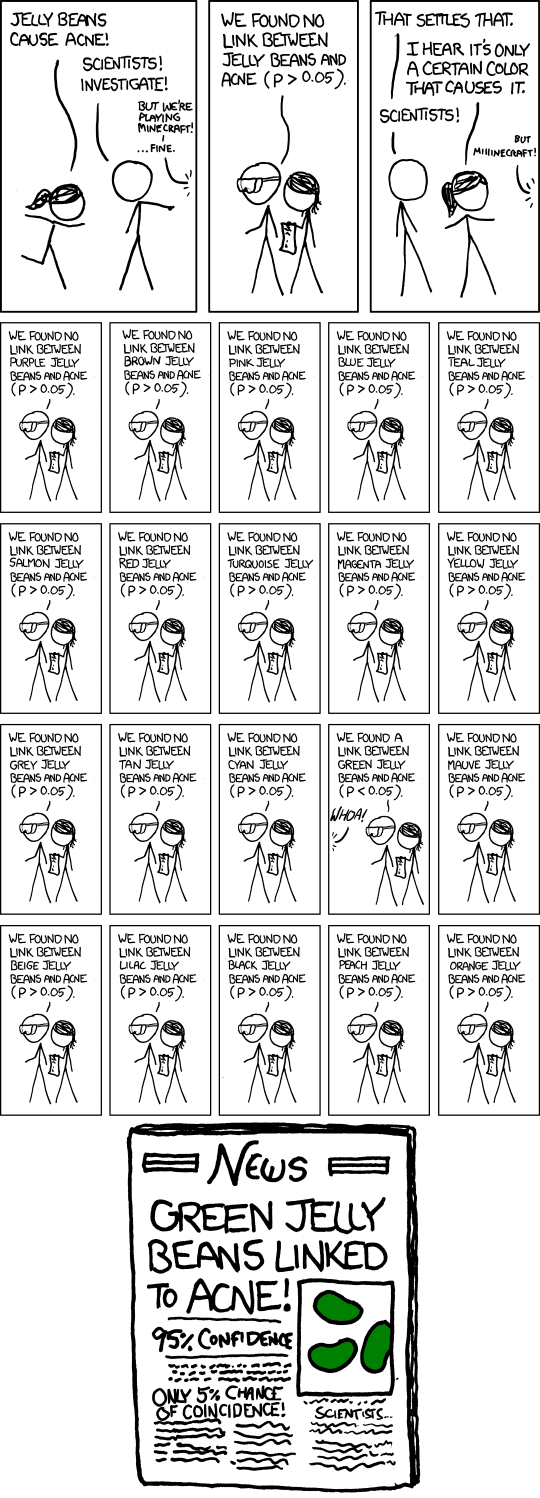We have a new paper out! This post is to describe what our paper is about. The paper is free to read, so please take a look if you are interested. Gabrielle Larocque, Daniel J. Moore, Méghane Sittewelle, Cansu Kuey, Joseph H.R. Hetmanski, Penelope J. La-Borde, Beverley J. Wilson, Nicholas I. Clarke, Patrick T. Caswell &
Messaggi di Rogue Scholar

There are perennial topics of discussion on Science Twitter. An example of this is: should figures be at the end of a manuscript are interspersed in the text. These topics tend not to be resolved because there are strong arguments (and personal preferences) on each side. I am not sure whether it is even possible to get people to agree with you using reasoned argument on Twitter.

The Costs of HARKing: Does it Matter if Researchers Engage in Undisclosed Hypothesizing After the Results are Known? While no-one’s looking, a Texas sharpshooter fires his gun at a barn wall, walks up to his bullet holes, and paints targets around them. When his friends arrive, he points at the targets and claims he’s a good shot.

Preregistration entails researchers registering their planned research hypotheses, methods, and analyses in a time-stamped document before they undertake their data collection and analyses. This document is then made available with the published research report in order to allow readers to identify discrepancies between what the researchers originally planned to do and what they actually ended up doing.

In this new paper (Rubin, 2021), I consider when researchers should adjust their alpha level (significance threshold) during multiple testing and multiple comparisons. I consider three types of multiple testing (disjunction, conjunction, and individual), and I argue that an alpha adjustment is only required for one of these three types.
PhD students sometimes get the same bad advice on writing their thesis. I call this advice the Rule of Three . Typically, they get told that their thesis: Will take 3 months to write Should have 3 results chapters Should be 300 pages These bits of advice have one thing in common: they are all wrong. If you have been organised (see below), it should not take 3 months to write a PhD thesis.

Do you have a graduate degree and are looking for a job? The US Government hires thousands of people with your skill set. Here I’ll give a quick overview of the scope of those jobs. If you’re looking for the exhaustive guide for applying on USAjobs its here. Why should I work for the federal government? A career with a federal agency can be just as rewarding, and sometimes extremely similar, as a career in academia.
Authors: Shawn Taylor, Jessica Burnett This guide accompanies this post highlighting careers in the US Government. The US federal jobs site, USAJobs, is notoriously difficult to use. This guide aims to clarify much of the process and is geared towards biologists, ecologists, and other natural resources practitioners interested in working for the federal government. Especially in the agencies listed below.

As the COVID-19 pandemic continues, different countries are experiencing various restrictions including lockdowns. Some of these restrictions alter our ability to do science: by hindering lab access or taking time away from researchers for homeschooling. So, what impact has the pandemic had on scientific output? One way to look at this – for biology – is to look at newly deposited papers on bioRxiv.

The scientific response to the COVID-19 pandemic has been astounding. Aside from efforts to generate vaccines, the genomic surveillance of the virus has been truly remarkable. For example, the nextstrain project has sequence many SARS-CoV-2 genomes. In fact, the rapid identification of multiple new strains and mutations by diverse groups of scientists has resulted in a nomenclature crisis.